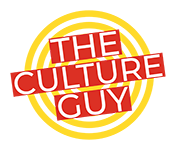10,000 years ago, humans made a transition from searching to cultivating.
The first agricultural revolution saw nomadic tribes move from going out and finding whatever was available and following the food source, to settling in communities and cultivating the land to grow their own needs and care for their livestock. We stopped being hunters and started being growers.
Then can the industrial revolution, 250 years ago. A revolution that saw machines start to do more of the physical work for us. Over the following two centuries, more and more machines and robots started doing more and more physical labour for us. First on the farms with tractors and harvesters, then in the factories with robots. Humans did less and less physical work and more and more mental work. We moved to offices and more and more people started using their mind for work, rather than their bodies.
And then followed the technological revolution when machines started to take on thinking work too. Over the last 60 years machines have become more and more “intelligent” and we have outsourced all sorts of thinking tasks, from financial transctions to medical diagnosis, from data interpretation to security to even making our phone calls. (Check out this video of Google Assistant booking an appointment.)
But don’t panic, because there is still the emotional work to do. Humans can still do the caring work and the emotional work like engaging and challenging students or inspiring sports teams or persuading voters that computers are (so far) unable to do.
But that begs the questions, when will computers take over the emotional work too. When will computers “grow” to the point of understanding often irrational human emotion? When will computers evolve to feel? And what will humans do then? What’s left?
Just a thought. What do you think? Leave us a thought in the comments.



